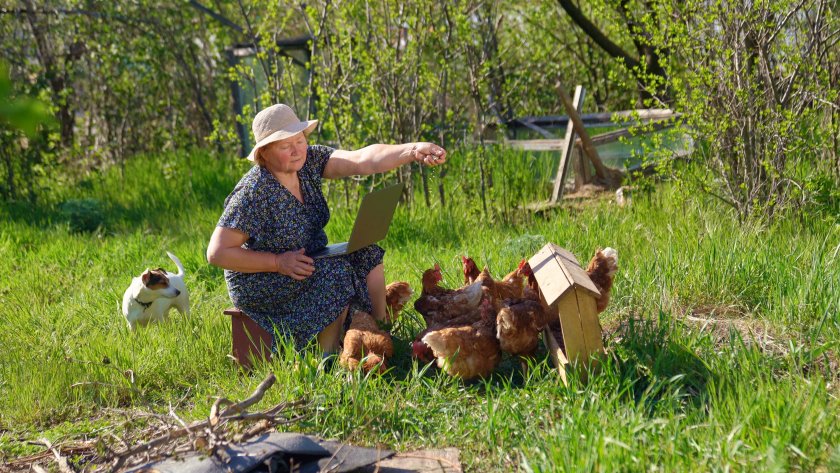
Confusion over government guidelines is preventing poultry farmers and keepers from complying with UK avian influenza regulations, researchers warn.
A new study has revealed that communication from the government could be 'hampering' bird flu control measures.
The report’s recommendations, which includes a new 'clear and simple' messaging campaign, could help to reduce future cases.
The research by the University of Nottingham follows the UK’s largest ever avian influenza outbreak, which began in 2021.
It found that the systems for dealing with the issue tend to be focussed on large commercial poultry flocks and don’t consider small-scale, or backyard, keepers who have made up 18% of the recent outbreaks.
Over 1,500 poultry keepers volunteered to take part in the study, demonstrating the importance of the issue.
Although 99% of them were aware of bird flu regulations, many of them said that government communication had been 'unclear'.
Some participants told the researchers that the measures were only achievable for commercial set ups.
The research also highlights a 'failure' by Defra and the Animal and Plant Health Agency (APHA) to connect with small-scale keepers; especially those who see their birds as pets.
Participants expressed confusion about the term ‘biosecurity’ and how to use disinfection measures like foot dips.
And regulations on the recording of vehicles entering the premises, and the movement or sale of poultry and eggs, were viewed as 'overly bureaucratic and unachievable'.
Sol Elliott, a veterinary student at the University of Nottingham, who initiated the study, said: "We were keen to explore aspects of the avian influenza communications that backyard keepers found unclear.
"An increased understanding of backyard poultry keepers' needs will help us to build trust and improve cooperation with any avian influenza guidance in place.”
Dr Emma McClaughlin, linguistics research fellow at the university, said effective communication around biosecurity and poultry health had a vital role to play in efforts to control avian influenza.
"Our findings highlight a pressing need to move away from a ‘one-size-fits-all’ approach and develop tailored messaging that addresses the specific challenges that small-scale and non-commercial keepers face.”
What do the researchers recommend?
The research team has made several recommendations, aimed at improving communication between policy makers and small-scale poultry keepers:
• 'Clear, simple' targeted messaging for small-scale keepers, along with better communication about the risks and benefits of adhering to biosecurity and housing measures.
• Providing affordable suggestions for achieving compliance and considering vaccination as an alternative to housing measures.
• Risk assessments to reflect the current UK situation, along with geographically- and time-specific responses that account for varying risk levels.
• Dissemination of targeted guidance via online poultry communities, along with additional community-based communication routes for keepers who don’t belong to online or in-person poultry communities.
